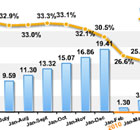Foreign and Military Affairs
German chancellor charms Party school members
By Ai Yang (China Daily)
Updated: 2010-07-17 08:59
 |
Large Medium Small |
Beijing - The elegant German Chancellor Angela Merkel interacted with an eager Chinese audience, fielding and asking questions about both political issues and more intimate topics such as family life.
The 40-minute session took place in the Party School of the Central Committee of the Communist Party of China in Beijing on Friday.
| ||||
"This century will give stage to global cooperation. We may not have known China well before, and we didn't know that as early as in the 10th century, this nation was a leading pioneer in mathematics. Although in the past 200 years Europe had been the frontrunner, now we need to get used to seeing China's rise," she said.
"We have an open attitude to competition, and we welcome more talks and dialogues in the future," she added.
The audience was made up of more than 60 middle-aged Chinese officials, most of whom work as department directors in local governments or sectors such as finance or media.
Liu Fengquan, of the China Banking Regulatory Commission, was the first to raise a question. He wanted to know what a multipolar world means to future cooperation between Beijing and Berlin.
"China represents the developing countries in the UN, but is also a good competitor of the industrialized countries. With its power in economics and technology growing stronger, the world has also started expecting more from it," Merkel said, adding that she hopes to see a more responsive China when it comes to issues such as Iran, climate change and trade.
The following two questions from the director of the Jiangsu provincial department of land and resources and an official from the Ministry of Science and Technology pushed Merkel to talk about the Chinese model, control on technology transfer and the EU's arms embargo.
Merkel not only voiced her concerns on freedom of expression, rights and mutual trust and understandings between countries, but also noted there are some fundamental societal differences.
"But just as your Confucius is different from our Jesus, we do not say our model is better than yours. We have to realize that China has a population of 1.3 billion, whereas the entire EU of 27 nations has only a little more than 500 million."
On the arms embargo, she said she does not think China's ambition is suspicious. "I don't think China's military is aggressive, and we are not worried. We have seen it trying to resolve the Taiwan issue peacefully."
Merkel took the last question on feminism from Su Xiaoqin, chief of the Jiangxi Provincial Public Security Bureau.
Although Merkel's time was running short for the discussion, curiosity got the better of the 56-year-old and she squeezed in just enough time to pose a question to Su who seemed about the same age.
Merkel said she is keen to learn about Chinese family life. "Are the men willing to cook and look after the children?" Merkel asked.
It turned out Su is a lucky woman, whose husband shares household chores with her. "We both do it (household work), depending on who has more time," Su answered with a smile.











